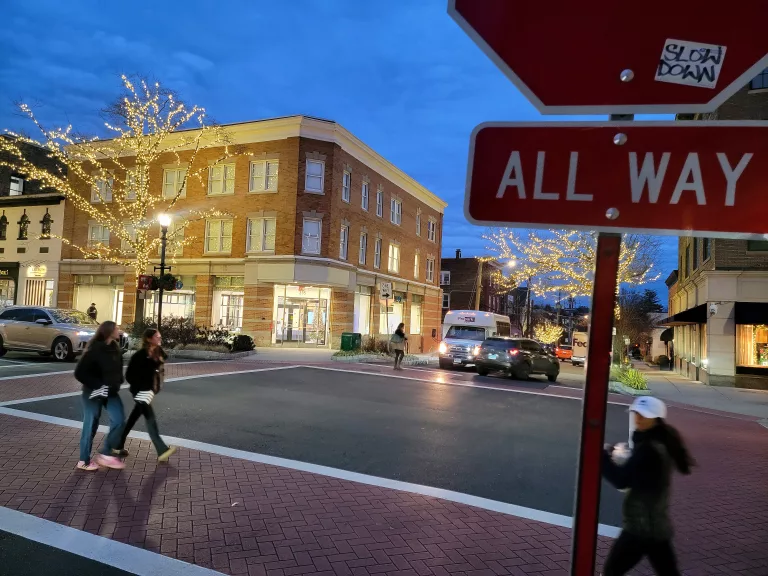By State Rep Kimberly Fiorello
As the weather is getting colder and some days dipping down below freezing, we make sure our children are bundled up, wearing hats and gloves to school. We check in with our elderly parents and elderly neighbors to confirm they are okay and have what they need. Many of us think of complete strangers and pick through our closets for gently used outerwear to donate to winter coat drives.
Perhaps without even directly acknowledging it, we instinctively know how seriously cold winters can hurt – even take the lives of – the vulnerable. Headlines like the one in The Economist this week, “High fuel prices could kill more Europeans than the war in Ukraine,” do indeed hit us in the gut.
Last week, on Nov 28, it was with grave concern for the people of the 149th district and of Connecticut that I, like other legislators, answered the Governor’s call for a Special Session to address the crisis of rising energy costs in our state. We already painfully suffer some of the highest utility costs in the country.
After several hours of debating the “emergency certification” bill, during which time three amendments put forth by the minority party, plus a motion to divide the clunky and complex omnibus bill into four separate bills all failed, the majority party got the bill they crafted exactly as they wanted it. And the Governor signed it.
For days since, news coverage, social media, and messaging from majority party politicians have been touting the narrative that government is “getting things done” and “making a difference” for the people. But I humbly beg to differ.
The parts of the omnibus bill included:
* reinstating the 25 cents per gallon gas tax five cents a month starting January 2023 through May 2023 and failing to reduce or suspend the 49 cents per gallon diesel fuel tax;
* continuing to make all bus services run by the state and transit authorities “free” until end of March 2023 by reallocating $10 million of federal American Rescue Plan Act, ARPA, funds (and leaders in Hartford and New Haven are now calling for all buses to be “free” permanently, although who they think will pay for that they have not said);
* claiming that the Low Income Home Energy Assistance Program, LIHEAP, is now “fully funded”, by reallocating $30 million of federal ARPA funds and other moneys, without explaining that payments to each household under that plan have been dramatically reduced f for all applicants, especially the lowest income people in greatest need;
* underfunding Operation Fuel CT which is designed to help middle income folks, pay their heating bills by providing $4.5 million of funding when the demand for this program this winter is estimated to be $60 million;
* picking winners and losers for monetary awards via the Premium Pay Program or so-called “hero pay”—a program not for state or municipal workers but, confusingly, only for certain “essential” private sector workers who worked through COVID while excluding many other workers, who were forced to stay home or work from home because government policy closed the businesses where they worked;
* and lastly, a non sequitur section, fixing a technicality in last year’s “bottle bill” that doubled the deposit fee on bottles and cans from five cents to ten cents.
To put a finer point on the section of the bill about LIHEAP, this August, the state dramatically reduced benefit amounts in order to cover such high demand.
The minimum range of assistance was cut to between $250 to $600 this year. Last year it was $410 to $1,015 and two years ago it was $340 to $725. The maximum level of assistance for poorest applicants was cut to $1,890, down from $4,825 last year and $2,980 two years ago.
This emergency certification bill did NOT increase assistance levels, but left them at the recently perilously diminished levels.
We all must understand the significance of this; our people most in need of help as costs are rising even higher this year will receive even less help than they received last year — about half the amount and even less in some cases for those most in need.
Sending out smaller and smaller checks to more and more people in need is not “getting things done” or “making a difference.” It IS leaving in place a regulatory and pricing system that is helping to create high energy costs in our state, and it IS perpetuating a cycle of making citizens dependent on state government for their survival.
Rather than making more people feel powerless and unable to help themselves, what the special session should have done was enact needed structural reforms like removing “public policy costs from our electric bills that add an extra 10%. Your Eversource electric bill is made up for four main categories: supply, transmission, distribution, and public policy, which are political initiatives that cost money. A 1 or 2% public policy cost would be acceptable, but 10% is exorbitant.
And reforms like separating both the Office of Consumer Counsel and the Public Utilities Regulatory Authority out from under the thumb of the state Department of Energy and Environmental Policy would ensure true independence of those bodies and made it harder for utility companies to raise rates exorbitantly.
Reasonable minds can disagree and of course, I do not want to make the perfect the enemy of the good. But my “no” vote is because it is not even close to good that we are not serious about lowering energy costs and instead we perpetuate government dependency for the people of our state.





